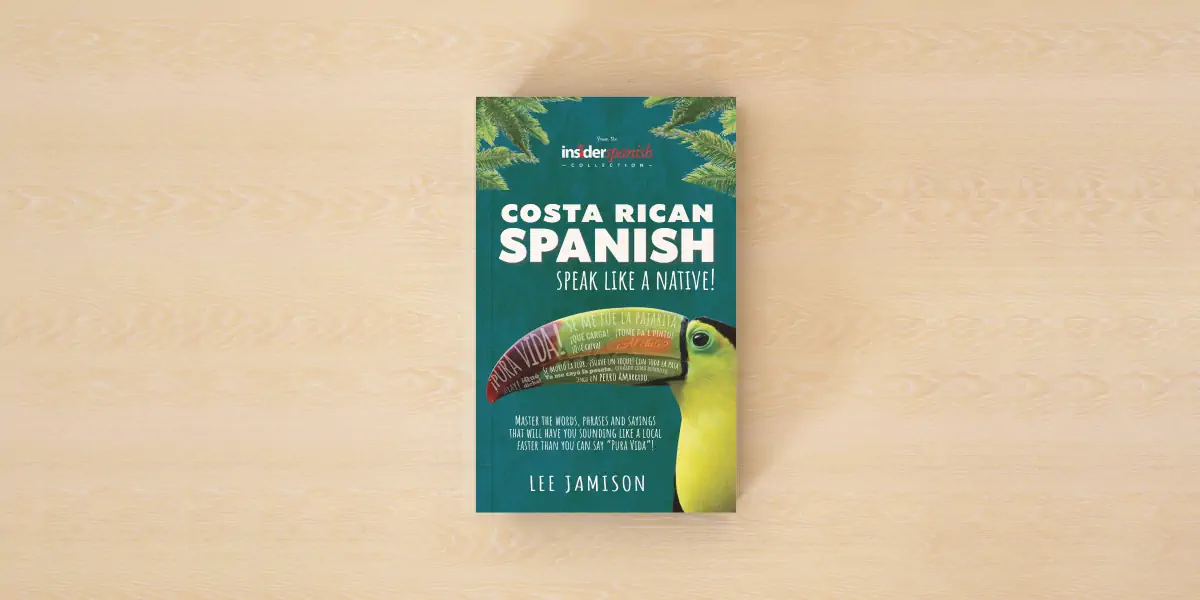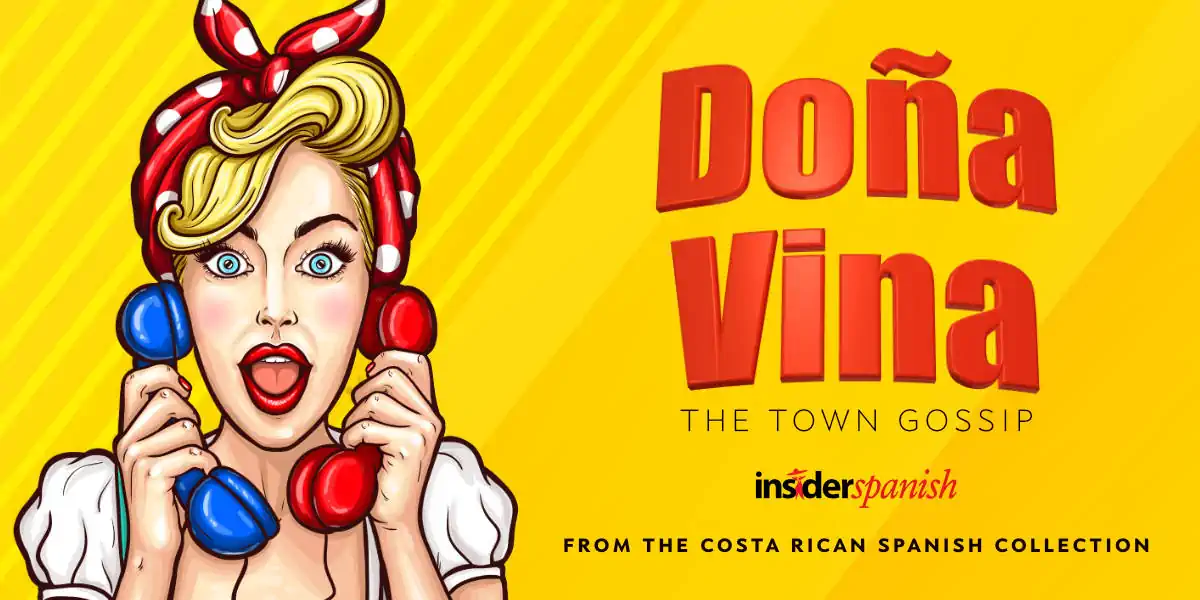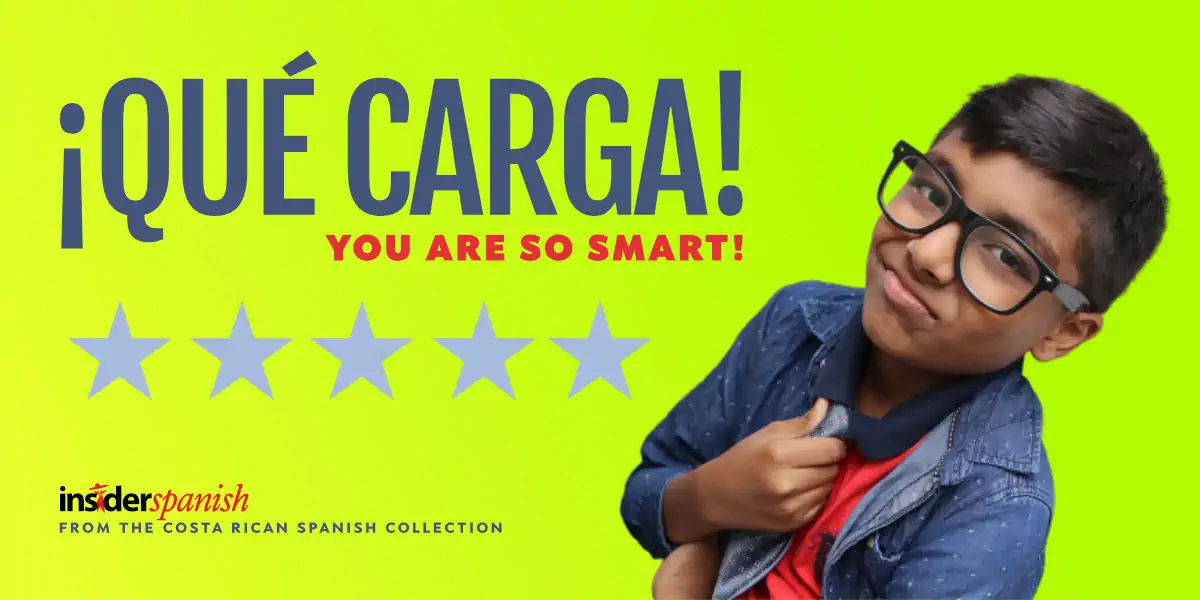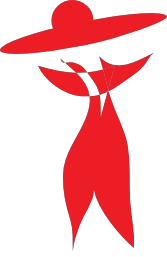10 Ways to Speak Costa Rican Spanish Slang
Slang is peppered throughout everyday speech. What are some examples of slang in Costa Rican Spanish?
Designed by Freepik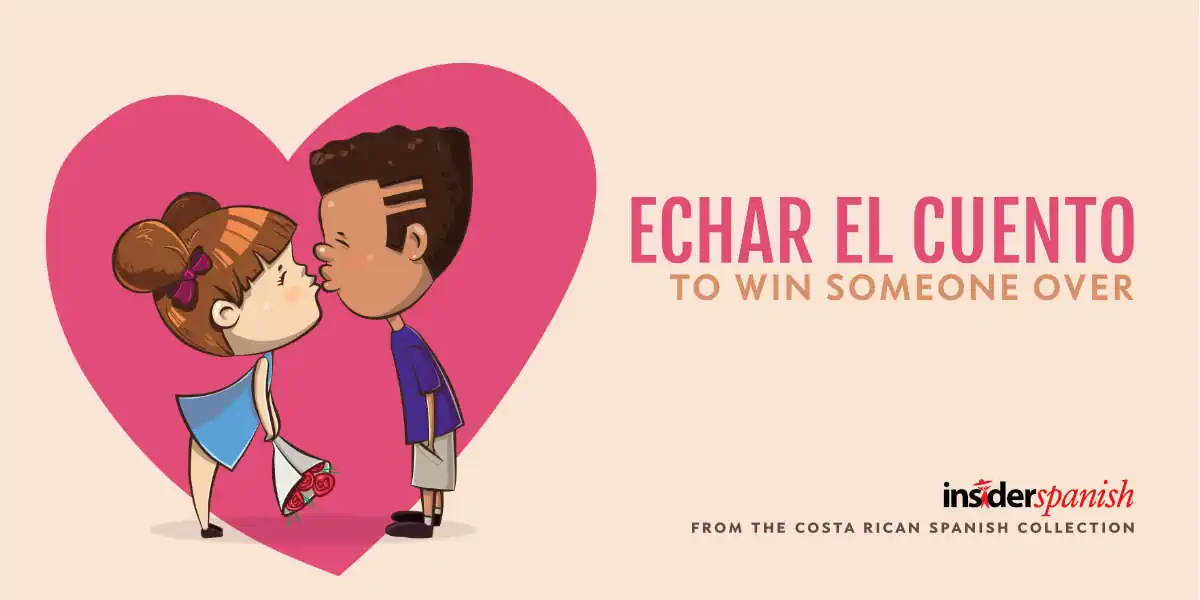
1. brocha
A brocha is a brush. Here when you want to butter someone up, you apply it with a figurative brush.
⚽ Katia es una brocha en la escuela. Con razón, saca buenas notas.
🏈 Katia is a suck-up in school. No wonder she gets good grades.
2. echar el cuento
How do you convince a girl that you love her? That has been the subject of songs and movies the world over. Locally, you achieve this goal by telling a good story, or cuento.
⚽ Pedro fue a echar el cuento a María.
🏈 Pedro went to try to woo over María.
3. hacer un McGyver
Remember McGyver? In the late 1980s TV series he was the secret government agent who always carried a Swiss army knife and duct tape, which he used ingeniously to get himself out of jams. His character has been immortalized here with this verb, which means to solve problems in unusual ways. Give the name a Spanish pronunciation: mahk-GEE-vuhr.
⚽ Diego hizo un McGyver y reparó el abanico con un poquito de mecate y cinta adhesiva.
🏈 Diego jimmy-rigged the fan with a little string and some tape.
By the way, have you seen the duct tape?
4. ¡Pura vida!
University of Costa Rica researcher Victor Sánchez reports that this quintessential local phrase has its origins in a 1955 Mexican movie entitled Pura Vida. In it the actor Clavillazo uses the phrase pura vida 13 times. So if someone asks how you are, just say: ¡Pura vida! That means you are doing great. What was that 1955 movie like? ¡Pura vida! It was fabulous! And it is alive and well today as the national buzzword.
⚽ A: ¿Cómo está?
⚽ B: ¡Pura vida!
🏈 A: How are you?
🏈 B: Great!
5. ¡Qué camote!
This literally means: What a sweet potato! Local writer Dennis Meléndez suggests that in a psychiatric hospital just outside of San José doctors experimented with patients by having them participate in the cultivation of sweet potatoes. Hence, sweet potatos became synonymous with having a screw loose. So the next time you hear a crazy idea, just say: ¡Qué camote!”
⚽ Mi tía invitó a todo el pueblo a la boda de su hija en medio de pura pandemia. ¡Qué camote!.
🏈 My aunt invited the entire town to her daughter’s wedding right in the midst of the pandemic. She’s nuts!
6. ¡Qué carga!
In standard Spanish a carga is a load. By extension, a rich person might be described as loaded. In this local adjective, the person described is loaded with talent.
⚽ Pregúntele la respuesta. Ella es bien carga en las matemáticas.
🏈 Ask her the answer. She is really smart at math.
7. ¡Qué chiva!
Lebron James is striving to be the GOAT. That’s not a hairy he-goat, but rather the Greatest Of All Time. Similarly, in Costa Rican Spanish slang, some locals call their girlfriends cabras, also female goats. And whatever we see through the eyes of love is beautiful. That’s the meaning here.
⚽ ¡Qué chiva su anillo!
🏈 That’s a beautiful ring!
If someone uses this word to describe you, there’s no reason let it get your goat.
8. ¡Qué dicha!
This exclamation means: What a blessing! or How fortunate!
⚽ ¡Qué dicha que trajo su sombrilla! Está cayendo un baldazo.
🏈 How fortunate that you brought your umbrella! It is really pouring down.
9. ¡Qué limpiada!
As a child, you spend hours cleaning your room. How will your parents feel when they see it? Impressed! That’s the idea behind this idiom that literally means, What a cleaning! It is like saying: I am so impressed!
⚽ El pequeño Daniel recetó todo el padrenuestro cuando apenas tenía unos 3 años. ¡Qué limpiada!.
🏈 Little Daniel recited the entire Lord’s Prayer when he was only 3 years old. How impressive!
10. Se murió la flor.
Who doesn’t like receiving flowers? You put them in a vase, enjoy their presence and aroma, but eventually they die and we throw them out. That’s why this metaphor means: It’s a done deal.
⚽ Después de colocar el último bloque, el albañil exclamó alegre: “¡Se murió la flor!”.
🏈 After laying the last block, the bricklayer joyfully exclaimed: “That’s all she wrote!”.
Looking for more ways to learn Costa Rican Spanish slang?
Be alert to the new words you hear in everyday speech. Don’t be shy; ask when you don’t understand a new phrase and write it down. Try to practice the new words as soon as possible so that it sticks with you. Also, check out the terms over at asíhablamos.com for an up-to-date list of the latest street talk. Better yet, get a copy of Costa Rican Spanish: Speak like a Native! and you will be well on your way to speaking the local Spanish like an insider.
#Ad
Get the Ultimate Guide to Costa Rican Spanish!
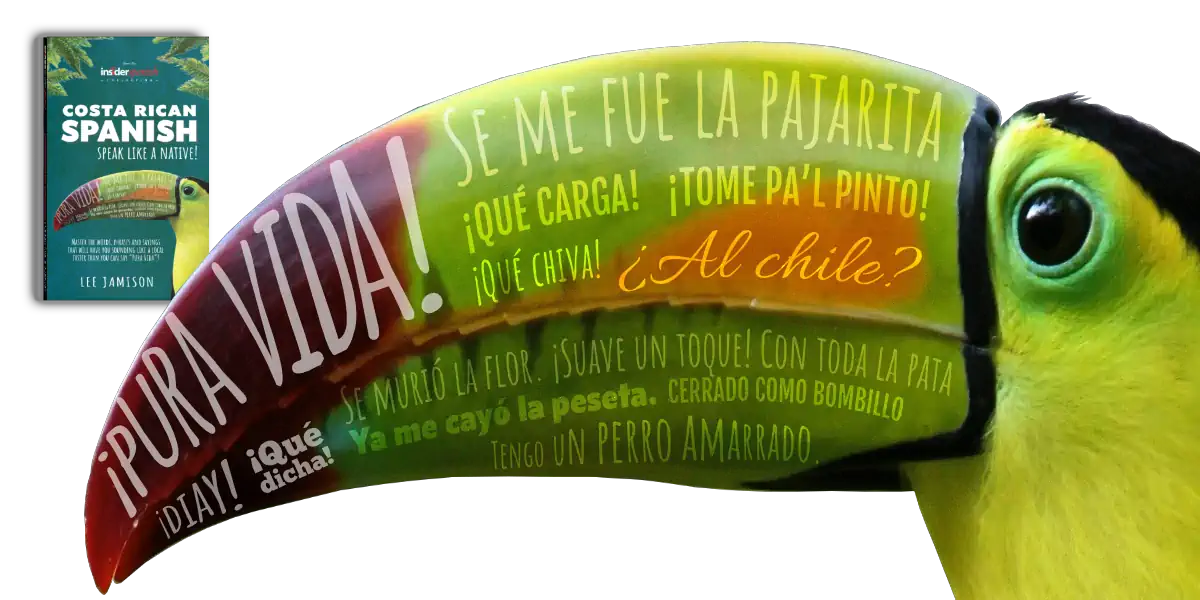
DON'T SETTLE for generic Spanish! Put away the stale phrasebooks and learn to speak just like the natives! Join us as we explore the most common expressions in Costa Rica. Does a CHORICERO sell sausage? If someone says to you ¡QUÉ CAMOTE!, is he vegan? Discover the real meaning behind the words. Make friends and save money at the market. Start learning Spanish…one country at a time. The Insider Spanish series of books have sold thousands of copies the world over. Our guidebooks are not meant to teach you basic Spanish, but rather to tailor your Spanish to the spoken idiosyncrasies of each Spanish-speaking country. Get your copy today! Available in print and Kindle versions.

